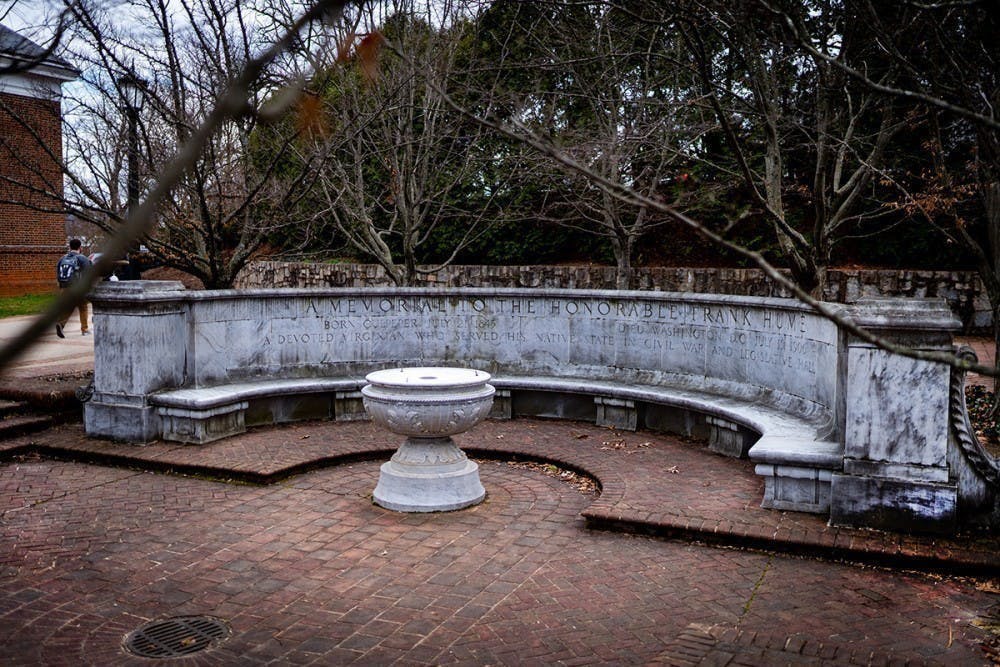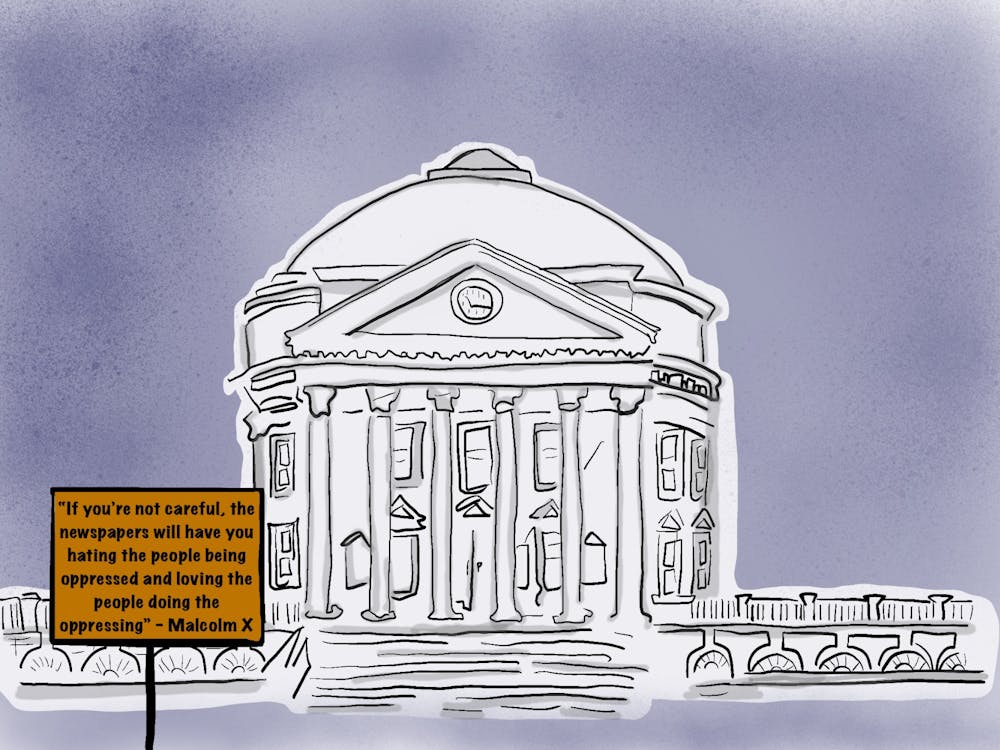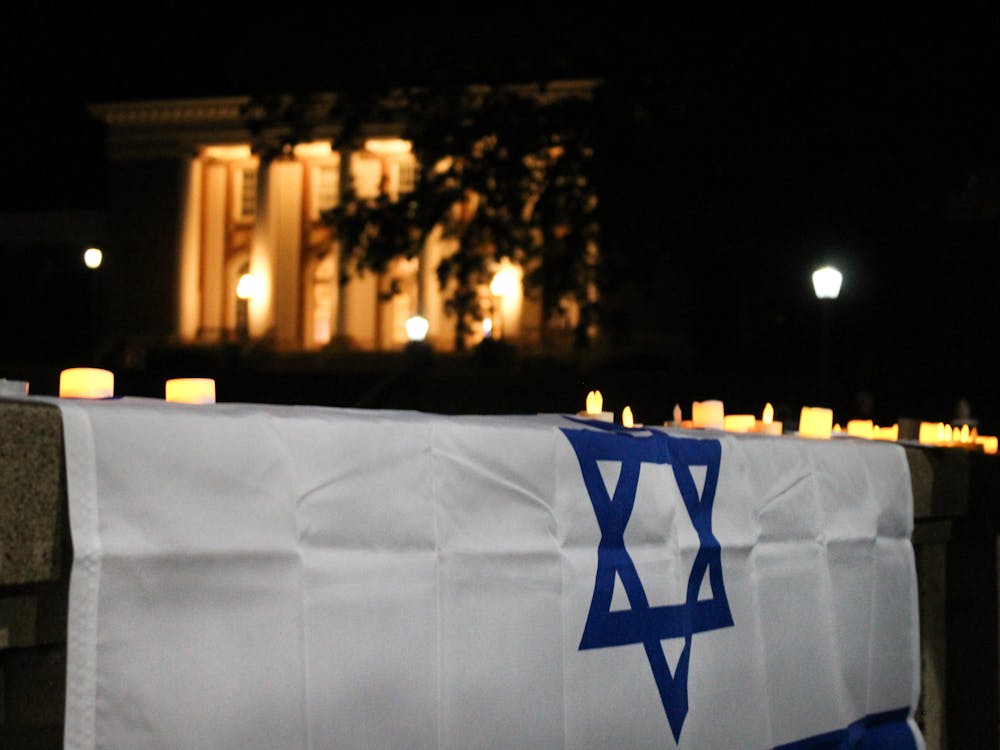The Unite the Right Rally might have been three years ago, but its hate and violence have left lifelong impacts on Charlottesville and its victims. The rally was organized in 2017 by several white supremacist groups protesting the removal of a statue of Robert E. Lee, commander of the Confederate States Army. At the demonstration, a white nationalist struck a crowd of peaceful counter protesters with his car, killing 32-year-old Heather Heyer and severely injuring others. But since then, little has changed in the way of justice for victims and combating domestic terrorism. University students, constituents and the government need to put forth the effort to erase remaining ties to white supremacy and reaffirm our commitment to anti-racism.
James Alex Fields Jr. — who drove his car into the rally’s counter protesters — was not charged as a domestic terrorist because the government has failed to develop a law that does such a thing. But even if prosecutors can’t charge domestic terrorists as such, the government's failure to hold them accountable through more than 50 general anti-terrorism statutes is a matter of practice. A review of the Justice Department by The Intercept found that prosecutors used anti-terrorism statutes on only 38 cases out of 268 right-wing extremist federal cases. This is a stark contrast to international terrorism cases in which such statutes were used over 400 times since the 9/11 attacks. These practices are indicative of a reluctance to apply terrorism law to domestic acts. For example, the shooter of Pittsburgh’s Tree of Life synagogue who murdered 18 people was not deemed a domestic terrorist because he used a handgun, rather than a weapon of mass destruction. International parties, like the Islamic State, are prosecuted more easily than American terrorists, like those seen in Pittsburgh and Charlottesville. Thus, we need more applicable statutes and legal action for acts of domestic terrorism.
One of the survivors of the white supremacist attack in Charlottesville is William Burke. He has suffered emotionally, physically and mentally at the hands of these racist and hateful groups and has been dragged through the court system trying to get justice and financial compensation for his injuries. In a recent court decision, former Ku Klux Klan leader David Duke was only ordered to pay $5,000 to Burke. Duke, a key organizer and participant in the rally, declared the decision “insignificant,” and thus a victory. The emotional, mental and physical toll of the rally on victims like Burke far exceed any monetary reward. If the government had taken steps to label the Charlottesville tragedy as an act of domestic terrorism, there would have been more charges against the attacker and organizers and more justice for victims.
Violent white supremacist groups carrying out domestic terrorism should be labeled as official terrorist groups by the Federal Bureau of Investigations. We have the legal resources to condemn the actions of these groups and hold them accountable. These government agencies should urgently recognize the dangers of domestic terrorism and prioritize these cases. Every American constituent can contact their congressional representatives and ask them to reintroduce the Jabara-Heyer No Hate Act. This bill would build upon the national hate crime reporting and data collection system and improve resources for local and state authorities to respond to hate crimes.
Additionally, Charlottesville's Confederate monuments were in contention for nearly four years, and the University still glosses over its racist past rather than educating on it. I propose that no Confederate statues should remain in Charlottesville — or anywhere else for that matter. Confederate statues are a disgusting memorialization of institutionalized slavery, as are the alt-right white supremacist groups that defend them. Removing these commemorations to racism will reaffirm that terrorism and white supremacy hold no place in our community and country. We can start with rededicating or removing the University’s Frank Hume Memorial Fountain, better known as the Whispering Wall. Frank Hume was a Confederate soldier and a memorial in his name is an egregious stain on the University.
Every stand we take against normalized monuments of racism is a sign of our commitment to all University students of color. The tragic events of the Unite the Right Rally should strengthen our dedication to removing signs of hate. We also must urge the government to institute relevant laws to combat domestic terrorism and improve the prosecution of these terrorists. It is our responsibility — as University students, as Charlottesville community members and as Americans — to take a stance against the threats of white supremacy and domestic terrorism in honor of Heather Heyer and other counter protesters who risked their lives on Aug. 12, 2017.
Nicole Chebili is an Opinion Columnist for The Cavalier Daily. She can be reached at opinion@cavalierdaily.com.
The opinions expressed in this column are not necessarily those of The Cavalier Daily. Columns represent the views of the authors alone.





